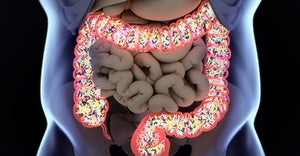Magnesium for Men’s Health

When it comes to supporting men’s health, exotic sounding nutrients and food sources tend to get most of the attention, such as coenzyme Q10 for heart health, red yeast rice for lipid management, and saw palmetto for prostate health. While these compounds can certainly be beneficial for health concerns in aging men, they shouldn’t crowd out the seemingly commonplace—but tried-and-true—workhorses of human physiology. One of the ordinary, “everyday” nutrients at risk for being underestimated due to its seeming simplicity is magnesium. But don’t let this mineral’s quiet demeanor fool you. For playing a role in men’s health, magnesium is anything but simple.
Three important health concerns that many men face as they age are heart disease, kidney stone formation, and erectile dysfunction. Fortunately, magnesium has been shown to be beneficial for all three. Supporting cardiovascular function is a primary concern for older men. Data from many studies support that magnesium intake is inversely correlated with calcification of the arteries—meaning, the more magnesium people consume, the lower the amount of blood vessel calcification. Compared to people with the lowest magnesium intake (self-reported), those with the highest had 58% reduced odds of having coronary artery calcification.
This is likely due to the complex interactions between calcium and magnesium when it comes to ensuring proper physiological function. Calcium and magnesium are both critical minerals to have in our diet, and magnesium may help the body regulate calcium balance, possibly by keeping it from being deposited in the soft tissue. (Vitamin K2 is also essential for this.)
High blood pressure—known in the medical world as hypertension—is a common sign of cardiovascular trouble, but it is often described as “the silent killer,” since it’s possible for someone to be hypertensive and not even know it. Low magnesium levels often go hand-in-hand with elevated blood pressure, illustrating the many roles magnesium plays in this issue. While calcium is regarded for its role in muscle contraction (squeezing), magnesium has the opposite effect: it is a well-recognized muscle relaxant. One way it accomplishes this is by providing a healthy counterbalance to calcium. But another way magnesium may beneficially affect blood pressure, specifically, is that it increases the production of nitric oxide. Nitric oxide is a vasodilator—it helps to relax blood vessels, which permits blood to flow through them more smoothly.
Another health concern for men is kidney stones. Stone formation is slightly more prevalent in men than women. There are several different types of stones, and they can form for a variety of reasons, but the most common are calcium-based, and they occur when calcium binds with other compounds and solidifies inside the body. (Specifically, it solidifies in places other than where it’s supposed to be solid, such as in bones and teeth.) Recognizing the importance of magnesium for balancing calcium, it’s not surprising that kidney stones often occur in the same people who have heart disease, and vice-versa. The complex interplay between calcium and magnesium suggests that the calcification of blood vessels, and the precipitation of calcium into solid stones, may both result from insufficient magnesium.
Aside from heart health and kidney stones, probably the most powerful, “real-world” concern for adult men of all ages, is sexual function. This issue moves to the forefront as men age, and some experience a decline in the ability to get and sustain an erection. One of the main causes of this may be reduced blood flow to the affected area. With this in mind, erectile function is another area where magnesium’s role in facilitating blood vessel relaxation may have a beneficial effect. Another factor that contributes to erectile dysfunction in aging men might be declining levels of male sex hormones (androgens). Interestingly, an additional feather in magnesium’s cap for supporting men’s sexual health is that it has been shown to positively affect anabolic hormonal status, including testosterone, in older men.
Considering leafy greens are good sources of magnesium, Popeye was right: men should eat their spinach!
Sources
- Maggio M, et al. The Interplay between Magnesium and Testosterone in Modulating Physical Function in Men. Int J Endocrinol. 2014;2014:525249.
- Hruby A, et al. Magnesium intake is inversely associated with coronary artery calcification: the Framingham Heart Study. JACC Cardiovasc Imaging. 2014 Jan;7(1):59-69.
- Alexander RT, et al. Kidney stones and cardiovascular events: a cohort study. Clin J Am Soc Nephrol. 2014 Mar;9(3):506-12.
- Houston M. The role of magnesium in hypertension and cardiovascular disease. J Clin Hypertens (Greenwich). 2011 Nov;13(11):843-7.
- David Brady







Comments 0